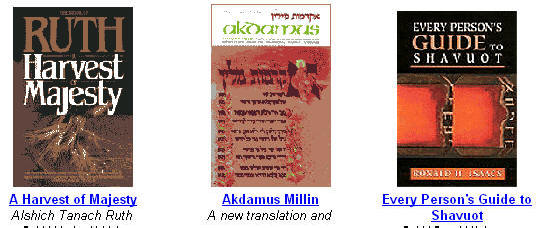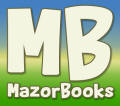
|
| • Holiday Gifts |
| Holiday Central > Shavuot > Hidden Facts and Messages |
By: Daniel Feldam, Contributor
Click Here for More Holiday Articles

Hidden Date
Shavuot is the only holiday mentioned in the Torah that has no specific calendar date. Unlike the other holidays, the day of Shavuot occurs on the fiftieth day following the counting of seven complete weeks after the “morrow of the Shabbat” (Interpreted in the Talmud as meaning the second day of Passover, regardless of which day of the week it occurred.)
Hidden Event
In addition, there is no explicit mentioning in the Torah that the Torah, itself, was given on Shavuot, though, the date can be determined from the sequence of events that occurred at Mt. Sinai from the moment the Jews arrived there, which, the Torah says, was the first day of the third month. (In the Torah, the year begins in Nissan, not Tishre, when we observe Rosh Hashannah.)
The
Question:
Why the apparent mystery of both the date and the event taking place? This is to emphasize the critical notion that Torah is timeless. We can witness the timelessness of Torah in numerous ways in our daily lives. Three such examples:
1. In the first paragraph of the “Shema Yisra’el” prayers we say: “These words that I command you TODAY shall be on your heart.”
Rashi, among, other sages interpret the apparently additional word, “today” as meaning that each day, one must view the words of the Torah as if he were first learning it anew that day.
2. Most books can be classified as “children’s” or “adult” books. Few, if any books at all, can appeal and apply to all generations simultaneously. Because it is timeless, the Torah appeals and applies equally to all generations. One of the tremendous joys of learning Torah occurs when parents and children study the Torah together. It is the ONLY book known where children and parents can both teach as well as learn from each other SIMULTANEOUSLY.
3. The Torah is far more than a “history” book or novel. It is a guidebook for how Jews are to conduct their lives. Its timelessness means that its laws apply equally to ALL generations. Likewise, the requirement to study and understand ALL of its laws applies to ALL Jews, even if someone cannot perform such laws. For example, men should study laws applicable to only women. All people should study the laws that apply only to Kohanim (“Priests”; descendants of Aaron.) One cannot say that he is exempt from understanding such laws.
Similarly, the same mitzvoth are performed by people of all generations. I am sometimes awed when I stand before a great rebbe or talmid chacham. He has tremendous knowledge in Torah and knows how to apply the Torah’s laws to daily life far better than I do. How can I compare with him? Yet, when I see that this Talmid Chacham has to wear tallit and tefillin and say the same morning prayers that I do; When I see that he has to make the same blessings before eating something just as I do; When I see he learns the same Torah with the same words, just as I do – I understand the true timelessness of the Torah. It spans all generations and all people. It is a guidebook for all of us, equally.

Mazor Guide to Shavuot, Pentecost, brings you much more about the holiday, its meaning and its traditions... See the links below.
- Shavuot Home
- Shavuot Purpose and Meaning
- Shavuot Customs and Traditions
- Shavuot Celebrations and Blessings
- The Story of Ruth and Naomi
- Reading Ruth: Rhyme and Reason.
- Shavuot Hidden Facts and Messages
- Shavuot and the Number Six
- Shavuot Cookbooks
MazorGuide Recommended Reading
 RUTH
- ArtScroll Edition
RUTH
- ArtScroll Edition
A new translation with a commentary
anthologized from Talmudic, Midrashic and Rabbinic sources
The ArtScroll Series presents the comments of the classic giants of ancient and contemporary times in a logical, comprehensible manner, like a master teacher on an exciting voyage of intellectual discovery.
- Entire Hebrew text reset in clear modern type
- Flowing English translation
- Commentary anthologized from 2,000 years of Talmudic and Rabbinic sources
- Overviews exploring the hashkafah/philosophical background of each volume.
To Be A Jew: A Guide To Jewish Observance In Contemporary Life
(Paperback)
by Hayim H. Donin (Author)
|
|
|
|

|
| • Holiday Gifts |
|
|
 |
| • Celebrations Gifts |
|
·
Wedding Gifts · Bar Mitzvah Gifts · Baby Gifts · Jewish Books at Great Prices |
KOSHER BY DESIGN Amazing New Kosher Cookbook. BUY |
Mazor Guides: Wealth of Information and Resources
- Mazor Guide - The Ultimate Guide to
Living Jewish -
- Guide to Jewish
Holidays -
-
Bar Mitzvah
and Bat Mitzvah Guide -
-
Guide to a
Jewish Wedding -
-
Guide to Jewish Celebrations -
-
Guide to Kosher Living -
- Infertility and
Judaism: A Guide -
- The Get (Gett)
- the Jewish Divorce: A Guide -
- Zei
Gezunt: Jewish Perspective on Health -
- Jewish Genetic Diseases -
-
Death and Mourning in
Judaism -
Copyright 1998-2024 MazorNet, Inc.
| http://www.MazorGuide.com | http://www.MazorBooks.com | http://www.Kosher-Directory.com | http://www.JewishCelebrations.com





